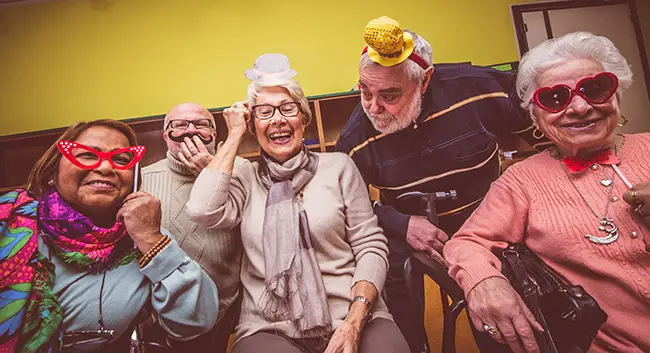
Upon hearing “senior center,” one might envision a group of older adults sitting around a table having lunch or playing bridge. That is a view often shared by not only seniors themselves, but by policy makers as well. While recreation and socialization certainly happens, senior centers are much more than that.
What is a Senior Center?
Most senior centers are multipurpose in nature. They can be not only a place where older adults come together for activities and social engagement, but also a gateway connecting elders with various services.
Not all centers are the same. They may focus more on one service over another, or one population over another. This is largely driven by geography. The needs of a particular community will drive who attends the center, what programs it offers, its size, and resources.
Senior centers typically receive their funding from a variety of sources. Those include federal, state, and local governments; fundraising, public and private grants; participant contributions; donations; and volunteer help.
A Brief History of Senior Centers
According to Encyclopedia.com, the modern senior center traces its roots back to the early 1940s when a center in New York City opened to help meet the needs of lower income older adults. Various White House Conferences on Aging, the Older Americans Act, and the National Council on Aging all contributed to their expansion. There are now estimated to be in excess of 10,000 senior centers (depending on your definition). Throughout their history, senior centers have worked at addressing the needs of older adults.
The 1978 amendments to the Older Americans Act are what explicitly outlined the role that local senior centers should play, establishing them as focal points to connect older adults with the larger aging network (organizations and programs designed to meet their needs).
Connection to Services
Older adults can (often) get connected with additional services at senior centers, such as:
- social and recreational activities
- congregate meals
- transportation
- health screenings
- volunteer and civic engagement opportunities
- public benefit counseling
- fitness and wellness programs
- nutrition education
- legal aid
- information and referral to other services/agencies (healthcare or housing as examples)
More than just for seniors themselves, senior centers can offer resources and respite to caregivers.
Summary
Seniors centers do surprisingly good work given their funding challenges. They are able to remain flexible and diverse, helping them meet the changing needs in their communities and across different generations.
